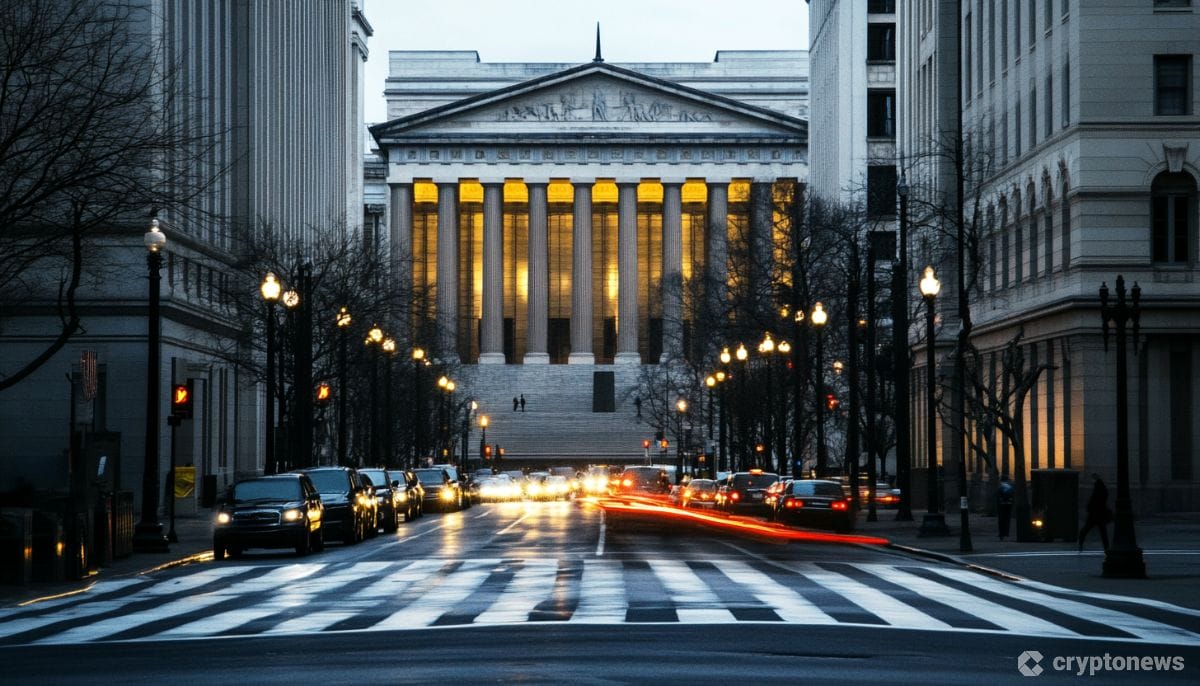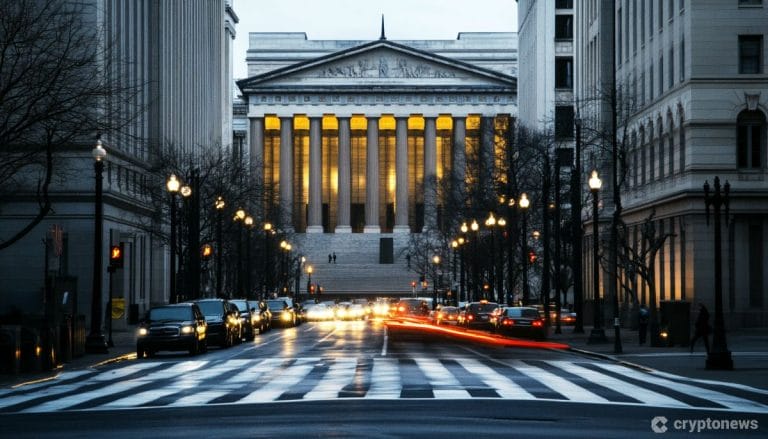Last updated:
 Why Trust Cryptonews
Why Trust Cryptonews

Cryptocurrency enforcement in the United States may ease under the upcoming administration of Republican President-elect Donald Trump, with regulatory priorities expected to shift.
Speaking at a legal conference in New York, current and former senior government lawyers indicated that while financial fraud cases will still be pursued, the Justice Department’s focus will likely move toward immigration enforcement, a key campaign promise of Trump.
Scott Hartman, co-chief of the securities and commodities task force at the U.S. Attorney’s Office in Manhattan, revealed that fewer resources will be allocated to policing cryptocurrency crimes.
High-Profile Crypto Trials
Hartman’s remarks follow the office’s recent high-profile convictions, including the trial of FTX founder Sam Bankman-Fried.
“We brought many important fraud cases after the ‘crypto winter’ in 2022, but with fewer prosecutors now, our regulatory partners will take the lead,” he stated during the Practising Law Institute’s event.
The landscape of crypto regulation could also change with Trump’s plan to nominate Jay Clayton, the former chair of the U.S. Securities and Exchange Commission (SEC), as the new U.S. attorney in Manhattan.
Clayton, who served as SEC chair during Trump’s first term, pursued some crypto-related cases but was perceived as less aggressive in regulating the growing sector compared to his successor, Gary Gensler.
Gensler’s tenure has been marked by a crackdown on major cryptocurrency platforms like Coinbase and Binance for allegedly failing to comply with registration requirements.
However, Trump has expressed intentions to remove Gensler, leaving the future of these ongoing litigations uncertain.
Many within the crypto industry, critical of Gensler’s strict enforcement, view Trump’s policy direction as potentially more favorable.
At the Commodity Futures Trading Commission (CFTC), another regulatory body overseeing cryptocurrencies, the focus on digital assets has grown significantly.
Ian McGinley, CFTC enforcement director, noted that nearly half of the commission’s cases last year were crypto-related.
However, McGinley suggested this trend might not persist under the new administration, emphasizing continued action only in cases of fraud or market manipulation.
U.S. Attorney’s Office in Manhattan Handles Financial Crime
Beyond crypto, the U.S. Attorney’s Office in Manhattan is widely recognized for handling financial crime and corruption cases.
Yet, Steve Peikin, who led SEC enforcement during Clayton’s tenure, suggested the Justice Department could reprioritize its efforts toward immigration enforcement.
Peikin described Clayton as a “great choice” for U.S. attorney but acknowledged potential shifts in departmental focus.
Hartman underscored the nonpartisan nature of his unit’s work in financial fraud but expressed concern about further resource reductions.
“We have 16 prosecutors in the securities and commodities unit, and I hope there are no more cuts,” he remarked.
As of late, the SEC has been facing growing criticism due to its “regulation-by-enforcement” approach to the crypto industry.
Critics argue that the SEC has failed to establish a clear regulatory framework for cryptocurrencies, opting instead to pursue legal action against key industry players.
As reported, a coalition of seven U.S. states has come together to challenge the Securities and Exchange Commission’s (SEC) regulation of cryptocurrency.





